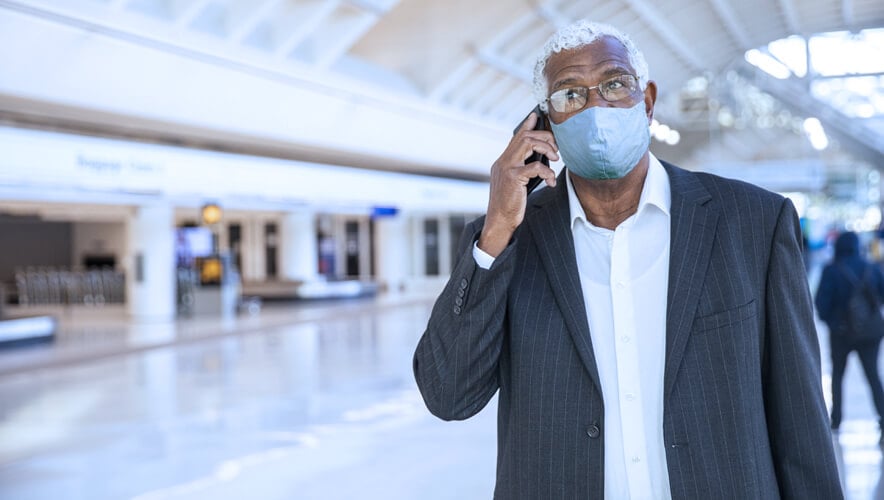COVID-19 and Travel: Where to Next?
What will the new normal look like for businesses and employees after the COVID-19 pandemic ends? And how will corporate travel policies change to keep employees safe—and make them feel secure—while traveling on official business?
“To create safe environments, first you need to start from the basis which is using trusted and reliable sources,” says Geert Coremans, CPP, director of corporate safety and security at The Radisson Hotel Group.
Coremans and his fellow panelists—Eduard Emde, CPP, head of the health, safety, and security section ESA/ESTEC at ESA European Space Agency; J. Nicole McDargh, CPP, regional security and H&S director at Richemont; and Radek Havlis, CPP, security director CEE and Central Asia at PricewaterhouseCoopers—have come together to speak on what it will mean and involve to create a new normal for businesses and employees in “Facing the Future: What’s Beyond the Horizon?” at GSX+.
As many people have shifted to working from home, fine-tuned safety management and travel policies for when they return to the office and traveling are a focus for many business and security professionals. The speakers agree that basing policies on accurate and expert information is key not only now but for the future.
Currently, most employees are working remotely, although the exact numbers depend on what extent—if any—the country has reopened.
Approximately 80 percent of PricewaterhouseCoopers’ workforce is engaged in remote work, Havlis says. This is partly due to the summer holiday season and partly in line with the company’s strict occupancy rate controls, which allow for compliance with social distancing and hygienic measures. In some instances, the ability to return to an office space will not only require approval from leadership within a business, but also from a government authority.
Moving forward, Havlis says he anticipates that a post-coronavirus office space will look very different.
“We believe that the traditional concept of the office as a fixed workplace will be partly abandoned and office environments will primarily serve as a collaboration and meeting space,” Havlis says.
Even in the retail sector, the speakers acknowledge that the pandemic will have changed the environment. While Richemont’s office spaces are operating at approximately 20 percent occupancy, McDargh says that businesses will require both ability—and agility—to appropriately scale both their office and retail spaces to adhere to restrictions on health considerations, such as face masks.
“For us, agility is the key,” McDargh says. “So, we have to hear the global context which gives us an understanding of where we are...and where trends are going.”
McDargh adds that on top of global concerns, security practitioners must also take into consideration more granular views—including health orders from countries, states, cities, and in some cases inner-city jurisdictions—when reopening their workplaces. Such localized orders extend beyond office spaces, especially as organizations move towards allowing travel for reasons beyond essential business.
“Restrictions can vary and are now localized,” McDargh notes. She adds that companies and employees will remain vigilant for what restrictions may be levied for both the country they are traveling from, as well as their destination. With the rules changing daily, she reiterates the need for agility or flexibility.
For more insights on what the future may bring, check out “HR and Travel Security Issues After COVID-19 Lockdowns,” on Tuesday, 22 September, starting at 10:15 a.m. EDT.
